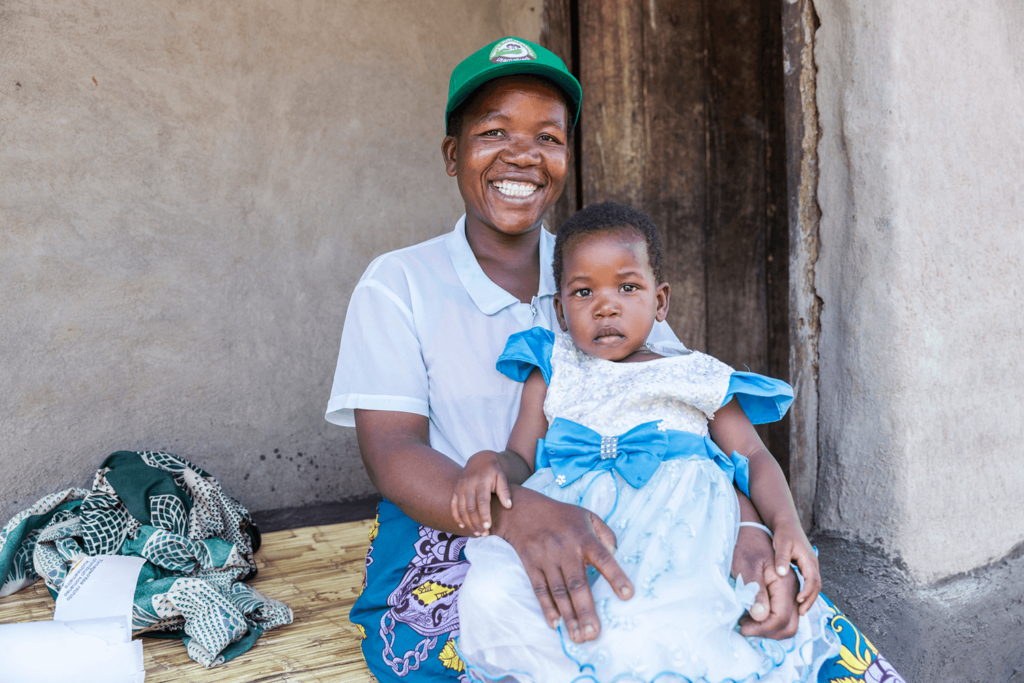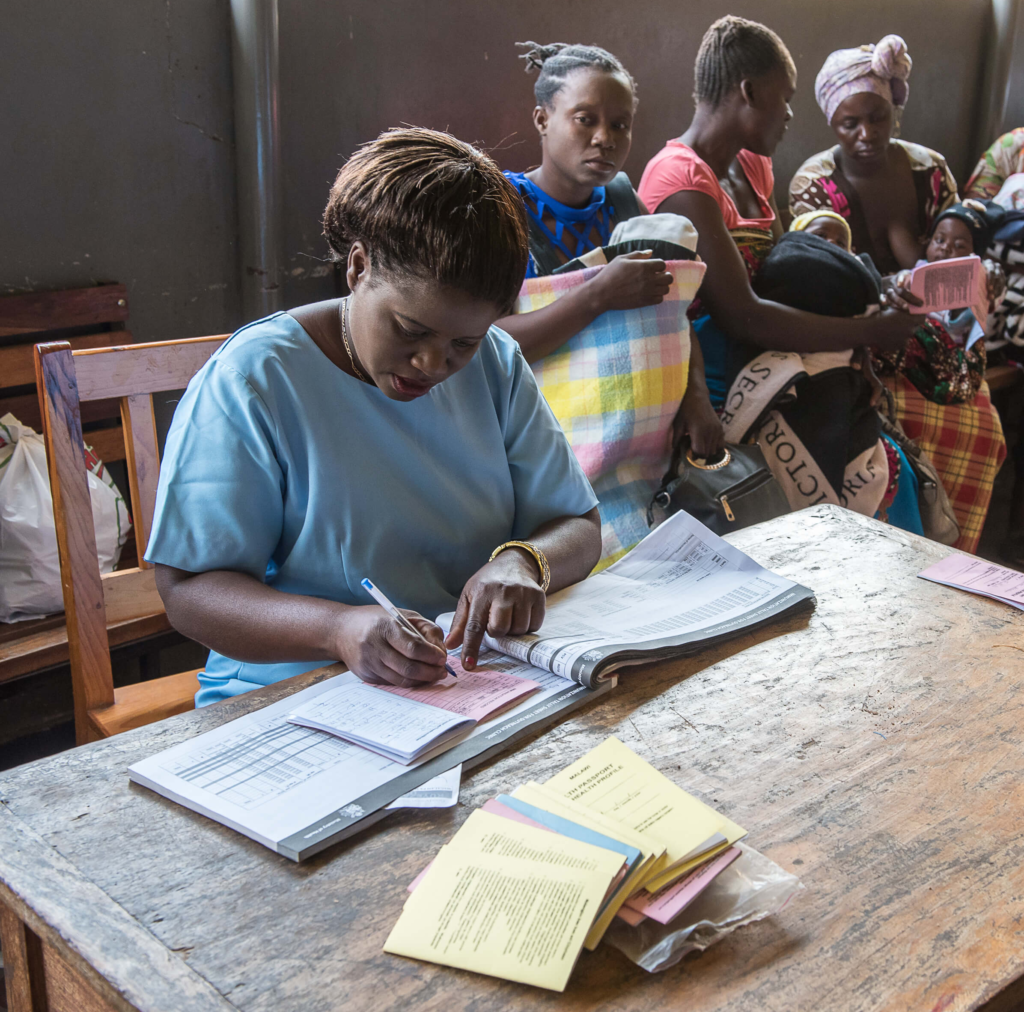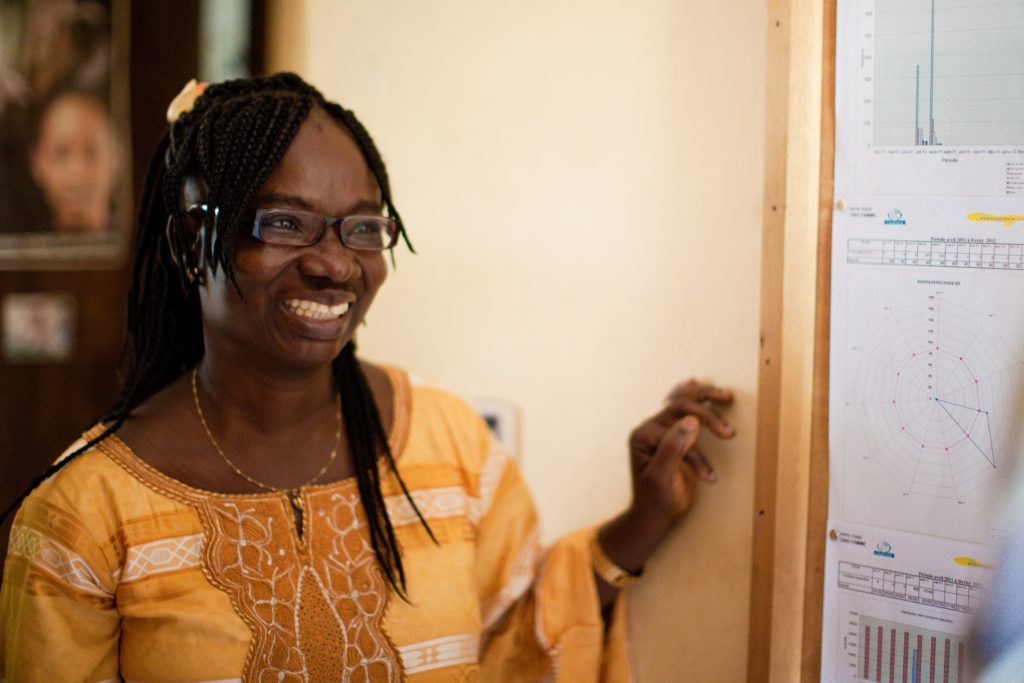Malawi
Malawi
Since 2003, we have worked with the Government of Malawi to strengthen the health system, expand prevention and treatment services into hard-to-reach areas, reduce maternal and childhood mortality rates, and improve access to, and demand of, quality health services.
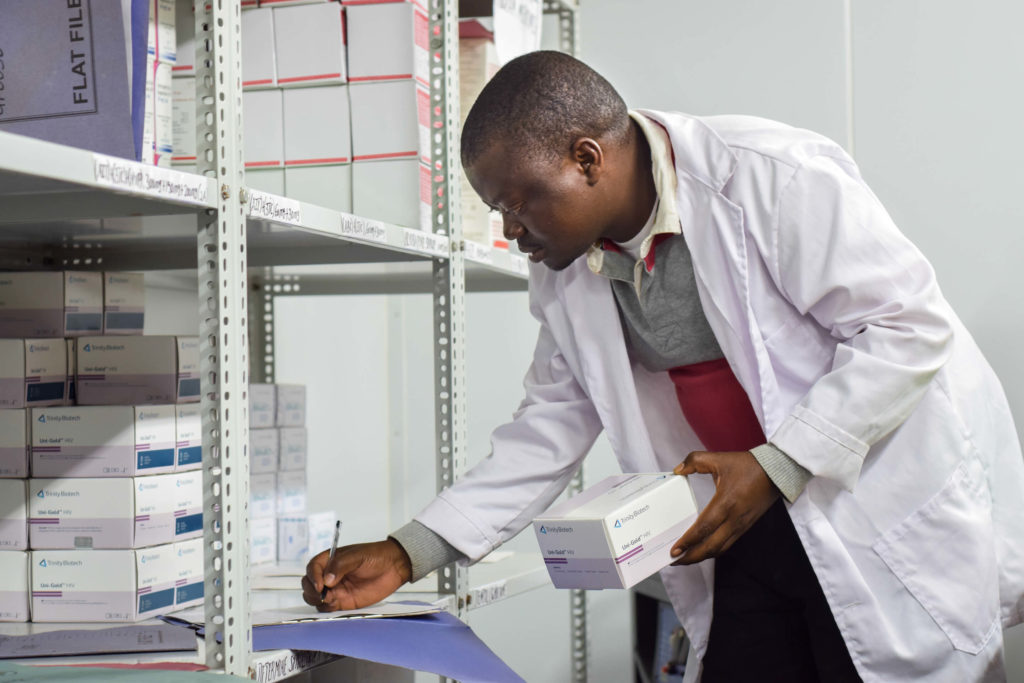
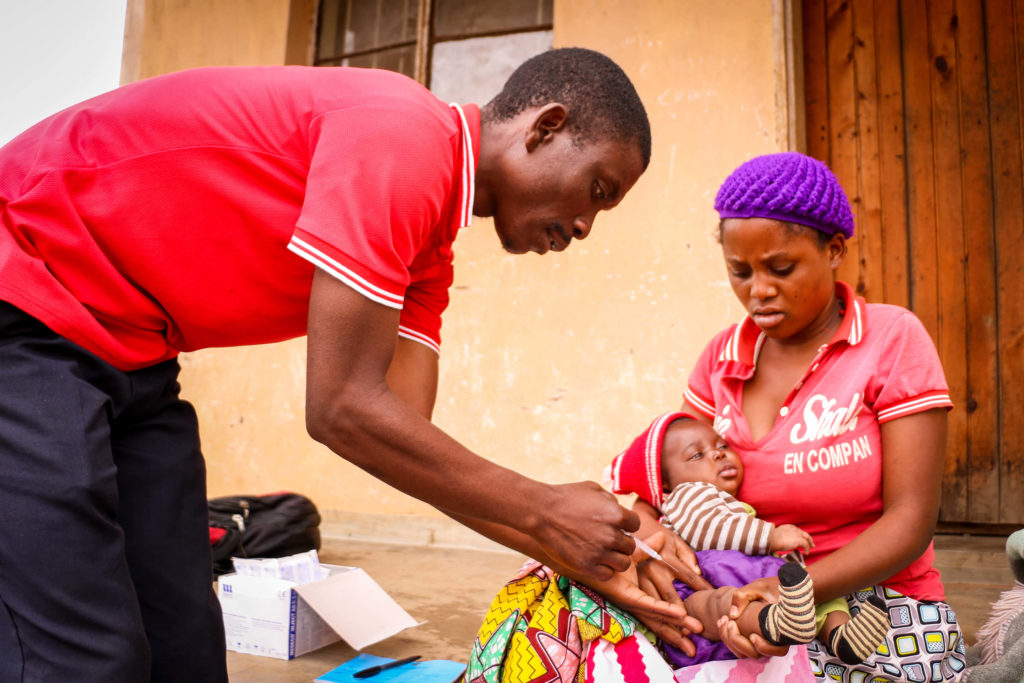
Quality Integrated Health Services in Malawi
An estimated 82% of Malawians live in rural or hard-to-reach areas, and many of the sparsely located health facilities have inadequate infrastructure and a shortage of health care workers.Under the USAID-funded Organized Network of Services for Everyone’s (ONSE) Health Activity, we have helped bring quality care to more than 1.5 million pregnant women and children across the country. Integrated family health outreach clinics, planned and coordinated in partnership with district leadership, deliver family planning services, antenatal and postnatal care, HIV testing and counseling services, child growth monitoring and promotion, and immunization services which have expanded to include COVID-19 during the ongoing pandemic.
Overview
With an initial focus on child health programs, we have helped expand integrated case management services for common childhood illnesses at the community level, building a more equitable and efficient health system across the country. Our programs have helped the Government of Malawi lead efforts in community-based family planning, maternal and child health, HIV testing and treatment, malaria management, and improved nutrition. With our support, Malawi has been at the forefront of Option B+, an innovative policy to test and treat all pregnant women living with HIV, diminishing the rates of vertical transmission to their children. We’ve helped improve local capacity and leadership skills to ensure well-supported and empowered health leaders at national, district, and community levels, and been a trusted partner for district-level planning and action. Through a range of interventions to strengthen health systems and community structures, our work has improved demand for, access to, and quality of priority health services used by more than half of the population of Malawi.
Infographic: Together for Everyone’s Health – Results from USAID ONSE Health Activity in Malawi
The Organized Network of Services for Everyone’s Health (ONSE) Activity in Malawi hosted its end-of-project event on June 13, 2022, capping off six years of improving health across Malawi. The team developed an infographic to provide a snapshot of the accomplishments and results of the Activity.
Putting Patients at the Center to Strengthen Primary Health Care
Smart Capacity Building for Malaria: Experiences from Malawi
ONSE End of Project Infographic
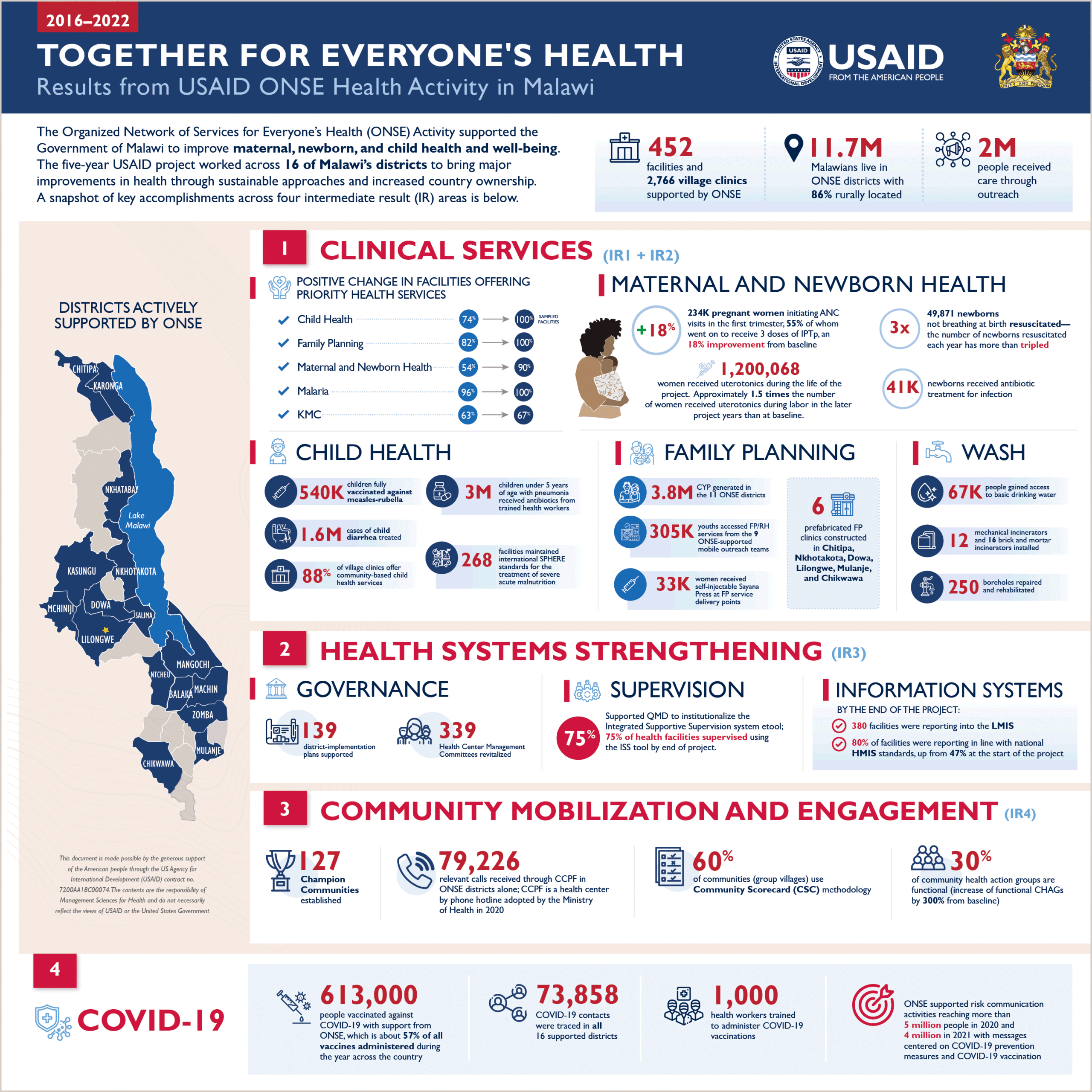
Job Opportunities in Malawi
Join us as we help solve the world’s public health challenges through innovation, dedication, and technical excellence. We are looking for talented, passionate people to join us—as employees, consultants, and interns—in advancing our mission to save lives and improve the health of the world’s poorest and most vulnerable people.

